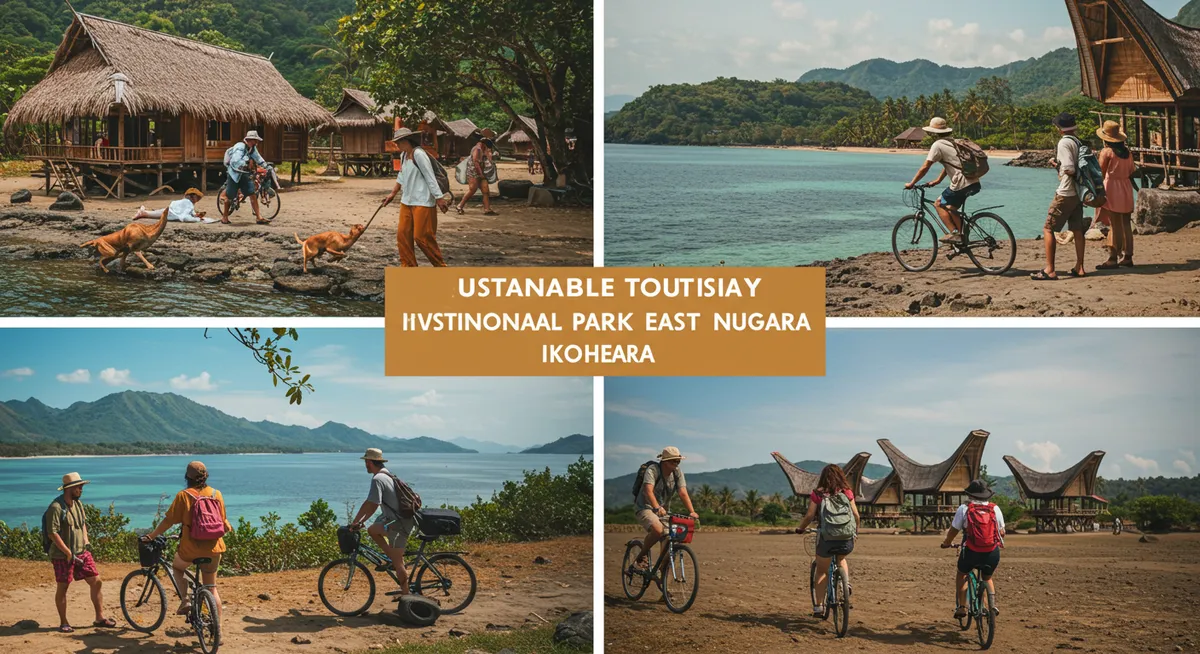
Your Guide to Sustainable Travel in Kupang
Table of Contents
Want to find the best travel deals for this destination? Chat with our travel hacking specialist!
Get Travel HacksCategory: sustainable-travel-in-kupang
Embrace Eco-Tourism: A Guide to Sustainable Travel in Kupang
Having explored many of Southeast Asia's hidden gems, I've witnessed firsthand the transformative power of responsible tourism. Embracing sustainable travel in Kupang isn't just a trend; it's a vital commitment to preserving the natural beauty and rich culture of this Indonesian island. This guide will walk you through practical ways to ensure your visit leaves a positive impact, from how you get around to what you buy and eat. It’s about making conscious choices that benefit both the environment and the local community, creating a truly authentic and meaningful experience for you and for Kupang.
Minimizing Your Footprint: Eco-Friendly Accommodation & Transport
Choosing where you stay and how you move significantly impacts your environmental footprint. For sustainable travel in Kupang, prioritize guesthouses or smaller, locally-owned hotels that demonstrate clear efforts in waste reduction, energy conservation, and water management. Always inquire about their environmental policies before booking. When navigating the city, opt for public transport like angkots or shared taxis, reducing individual carbon emissions. From my own travels, I've found that choosing smaller, locally-owned guesthouses often means they have a more direct stake in community well-being and are happy to share local tips. For comprehensive guidance on reaching this beautiful destination, consider checking out our guide on how to get to Kupang, providing eco-conscious travel options.
Engaging Responsibly with Local Culture & Nature
Kupang boasts stunning natural landscapes and a vibrant local culture, both deserving of respect and protection. When exploring beaches or marine areas, always adhere to 'leave no trace' principles; pack out everything you pack in. Participate in guided tours that emphasize conservation and local educational initiatives, ensuring your activities contribute positively to the environment. Having spent time exploring Kupang's incredible coastline, I can attest that respecting marine life and coral is paramount; always choose tours that don't involve touching or disturbing habitats. Engaging with locals respectfully, learning a few Bahasa Indonesia phrases, and understanding customary practices also forms a crucial part of responsible tourism. Discover more about fascinating things to do in Kupang while maintaining a sustainable approach.
Supporting Local Economies: Ethical Shopping & Dining
A key aspect of sustainable travel in Kupang involves directly supporting the local economy. Choose to eat at family-run warungs or local restaurants where ingredients are sourced locally, reducing food miles and benefiting farmers. Similarly, when shopping for souvenirs, seek out handicrafts made by local artisans. This not only ensures your money stays within the community but also preserves traditional skills and cultural heritage. Avoid mass-produced items and bargain fairly, understanding the value of their craft. When I visited Kupang, I always sought out local markets and warungs, finding not only delicious food but also direct ways to put money into local hands, a core tenet of responsible travel. For a holistic overview of your journey, our comprehensive Kupang travel guide offers more insights.
Planning Your Green Getaway to Kupang
Effective planning is fundamental to achieving truly sustainable travel in Kupang. Research local environmental initiatives and cultural norms beforehand, enabling you to arrive well-informed and prepared to make ethical choices. Consider visiting during the shoulder seasons to alleviate pressure on popular sites and minimize overcrowding. My experience planning trips to places like Kupang has shown that a little research into local customs and environmental guidelines before you go can make a huge difference in your impact. Always pack reusable water bottles, shopping bags, and personal toiletries to reduce waste. Knowing the best time to visit Kupang can also enhance your eco-friendly trip, aligning with less crowded periods. For broader Asian travel insights and planning resources, you can always explore Plan Vacation Asia.
Frequently Asked Questions
Why is sustainable travel important in Kupang?
What local crafts can I buy sustainably in Kupang?
Are there specific eco-tours or initiatives in Kupang?
Embarking on sustainable travel in Kupang allows you to experience this beautiful region in a way that respects its environment and empowers its people. By making conscious choices regarding your accommodation, transport, activities, and purchases, you contribute directly to preserving Kupang’s unique appeal. Your thoughtful actions ensure that the vibrant culture and pristine natural landscapes remain intact for everyone to enjoy for years to come. Start planning your responsible adventure today and discover the profound rewards of impactful, eco-conscious exploration.